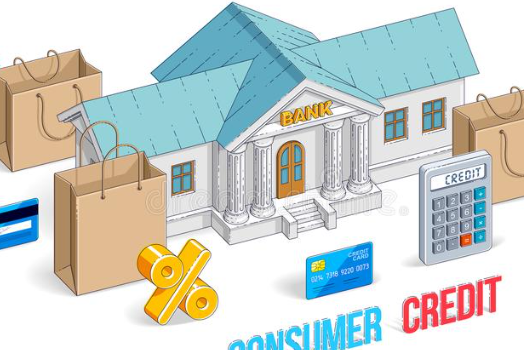 Credit
Credit
What is Consumer Credit?
|
Getting your Trinity Audio player ready...
|
Are you considering taking out a loan? Are you wondering what exactly is consumer credit? Consumer credit has become a necessary part of life for many people. Easy access to such credit can be very tempting as it enables consumers to buy items now, whilst paying for them later. With so many loan and financing options available, it can be difficult to understand the pros and cons of taking on such credit.
If you’re curious about the world of credit, then this article will provide an insight into what it is, how it works and how to use it responsibly. It will cover topics like the types of consumer credit, potential risks involved and tips on how to make the most out of your debts without incurring too much financial risk.
What is Consumer Credit? 
A installment credit loan allows a borrower to receive a specified amount of money for a fixed period. Borrowed money is often used for buying items and services that are not instantly accessible or reasonably priced.
The lender typically charges interest on the borrowed money, which must be paid back within an agreed-upon time frame (usually monthly). Installment credit can come in various forms, including:
- Credit cards – Credit cards offer revolving lines of credit with varying interest rates and terms. They are often used for everyday purchases such as groceries, gas or other small items.
- Loans – Loans are a lump sum of money that is borrowed and repaid over an agreed-upon period. Examples include auto loans, home loans, and personal loans.
- Retail financing – This credit is offered by businesses and often includes special offers such as zero-interest or deferred payment plans.
Potential Risks of Consumer Credit
Although using consumer credit to access goods and services that might not otherwise be accessible can be highly beneficial.
- Interest rates – Depending on the type of loan you take out, it may have a high-interest rate attached to it, resulting in expensive payments over time.
- Late payments – Missing payments may lead to late charges and have a negative effect on your credit score.
- Defaulting on loans – If you don’t make payments on your loan, you could end up defaulting on it.
Tips for Using Installment Credit Responsibly
Using installment credit responsibly is key to avoiding financial hardship. Here are some tips to help ensure you’re using it wisely:
- Set a budget- Before taking out any type of loan , make sure you have a budget in place so that you know how much money you can afford to borrow and repay.
- Pay off debt quickly – Try to pay off any debt as quickly as possible to avoid interest charges and keep your credit score in good standing.
- Monitor your spending – Keep track of your spending habits so that you can be sure you’re not taking on too much debt.
- Shop around – Compare interest rates and terms from different lenders to ensure you’re getting the best deal possible.
- Don’t overextend yourself – Don’t take out more debt than you can realistically afford to repay. This could put you at risk of defaulting on the loan or damaging your credit score.
Importance of Credit for Consumers.
Consumer credit can be a powerful tool when used responsibly. Credit can provide access to services that may not be otherwise affordable, and build your credit score. It should be used responsibly as there are risks associated with debt . It’s important to set a budget, track spending habits, and compare interest rates to ensure safe usage.
The Bottom Line.
Consumer credit can be a great way to access goods and services that may not be affordable. But its always important to use them responsibly. Setting a budget and shopping around for the best rates can all help ensure that you’re using consumer credit wisely. By understanding the importance of consumer credit and using it responsibly . You can potentially increase your financial security and improve your overall financial health.









